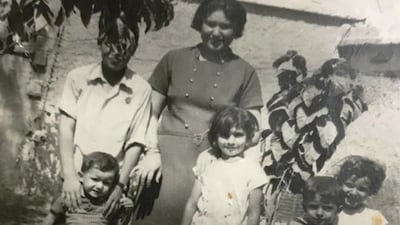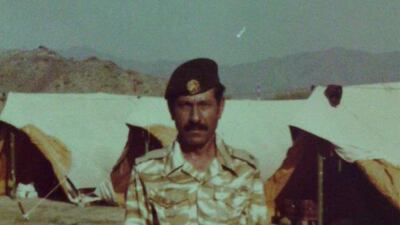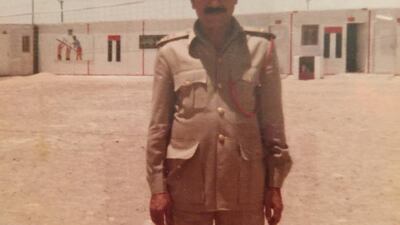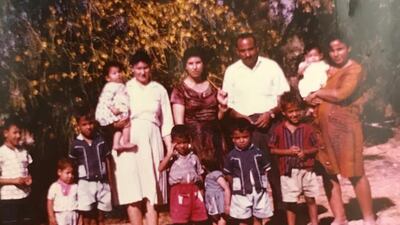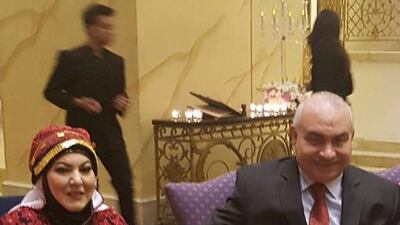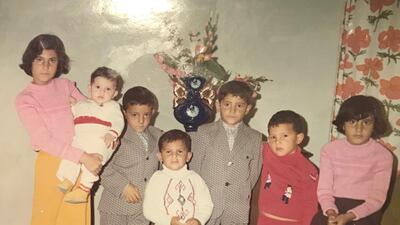The 20-minute drive Majida Obaid makes to Murshid market in Deira to buy Ramadan groceries these days is a far cry from the two-part journey — involving a ferry and a British army vehicle — her family used to make in the early 1970s. And for that she is grateful.
Ms Obaid, originally from Palestine, was born in Al Mirqab military camp in Sharjah in 1965 and is spending her 57th Ramadan in the Emirates this year.
She recalls making the long journey from the camp to Dubai with her mother and two other families to shop for food during the holy month in the Trucial States.
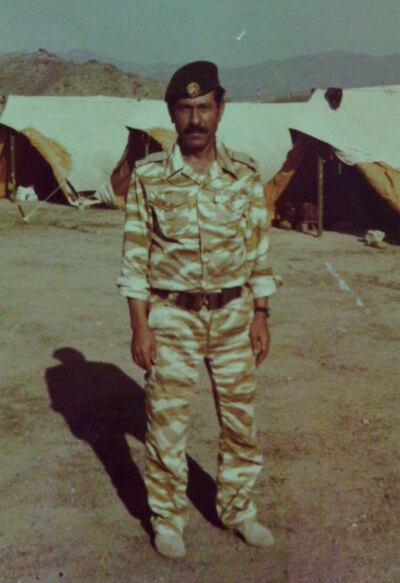
“The army Range Rover would struggle in muddy puddles before it took us to a location from which we took the ferry to Dubai,” said Ms Obaid.
Now a mother of five, she said the journey felt more like a picnic or full day out for her and the children of the other two families than a shopping trip.
“We were three Palestinian families [living] in the camp and all three went shopping for Ramadan food items together from a shop called Gaza shop in Souq Murshid.”
Her father was from Kafr 'Ana, a Palestinian town 11 kilometres east of Jaffa that was violently depopulated in 1948 to make way for Jewish settlers in the lead up to the creation of the state of Israel.
He moved to Sharjah in 1962 to work as a PE teacher at a school in the camp. The military site, which also housed a school, clinic, theatre and cinema, eventually went on to become the base for the UAE army after the unification in 1971. Old British equipment used during the Trucial States period can still be seen at its headquarters today.
Two years later, Ms Obaid's mother joined her father in Sharjah and Ms Obaid became the first of eight children — six boys and two girls — born to her parents.
Her early Ramadan memories include watching her late mother tear strips of dried apricot paste to soak in water overnight and turn into the popular drink Qamar Al Din.
“I also remember when my mother used to wake up for suhoor.”
Fasting Muslims at the camp knew when to break their fast each day on hearing the muezzin from a nearby mosque call for prayer at sunset.
“He [would] turn in all directions and call for prayer so that everyone heard him,” she said.
In the evenings, her father and his colleagues would visit the late Sheikh Khalid bin Mohammed Al Qasimi, then Ruler of Sharjah, at his majlis.
“There was a fort in Al Khan area where they all met.”
Life at the camp and within Sharjah was simple.
“At that time it felt as if we lived alone and the trip from Sharjah to Dubai was a long travel,” said Ms Obaid.
She fasted for the first time at the age of 9. By then the family had moved into a villa her father built in Al Fayha — a neighbourhood with other Muslim Palestinian families.
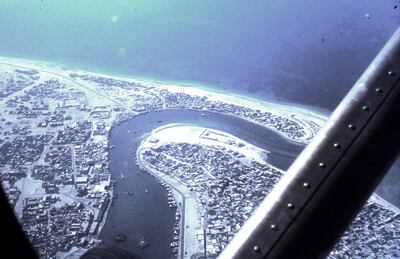
It was also then that she was introduced to a popular Ramadan dessert, similar to a folded pancake stuffed with sweet cheese or spiced nuts and drenched in syrup.
“[During that time,] I saw qatayef for the first time,” she said.
For Eid Al Fitr, her father would buy her and her sister three dresses each — one to wear on each day.
With each passing year, Ms Obaid saw Sharjah change around her.
“What used to be bare desert and sandy roads started to transform into busy neighbourhoods,” she said.
The family moved to a larger home in Ajman in the mid 1970s, a few years after the formation of the UAE.
There, Ms Obaid attended school and made lifelong friends, as more and more tall concrete buildings began to rise around them.
After she graduated from high school, she married Omar Awad.
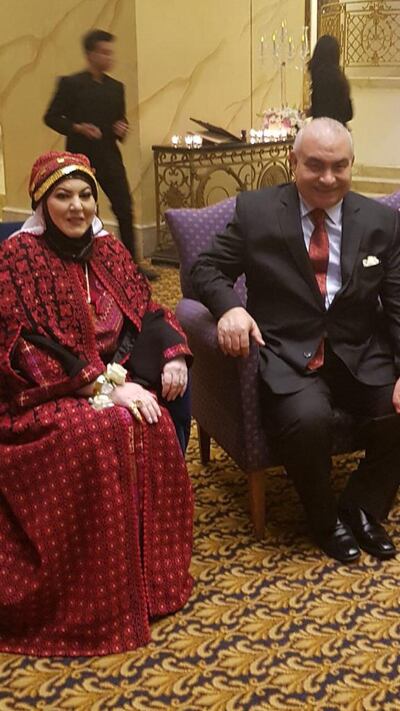
“My wedding was on the last day of Ramadan in 1984,” she said.
The couple lived in a building on King Faisal Street that is now scheduled to be demolished.
Life in the UAE in the 1980s moved fast, she said, but the country's transformation only steamrollered ahead even faster in the 1990s.
“It felt that progress in the UAE had a beginning but no end. People may see it on the screens [in pictures] or hear of it, but I lived it.
“Every time I returned from travel, there was something new in the UAE to the extent that I could no longer distinguish the roads and drive myself to Dubai.”
But her memories of her first years at the British camp will never fade.
“If I returned to it now, I would recognise every corner.”
